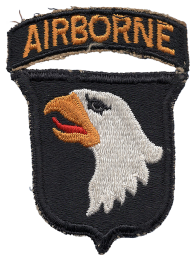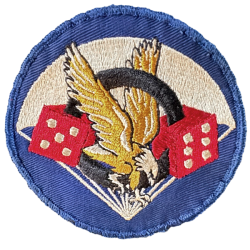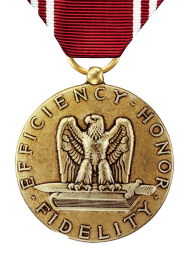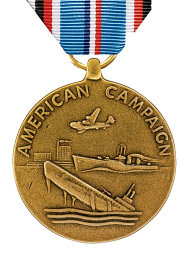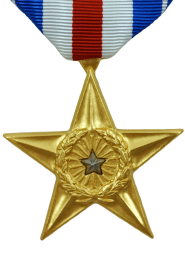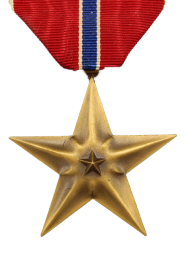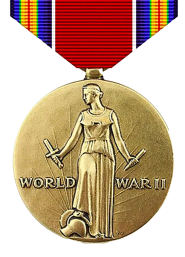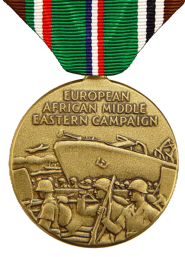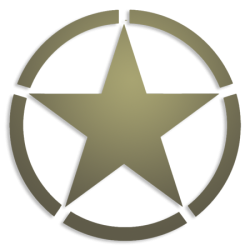A South Philly boy in the depression
William "Wild Bill" Guarnere, born 4-28, in south Philly, baby of ten children. As it was then, depression was rampant in the USA. We all had nothing, grew up in the streets, had family value, and looked after one another. At age 15, the US government decided to help the boys through the depression era, they had the CCC and the CMTC Program. The CCC was a civilian effort to get kids off the streets, and make them work in all towns and cities across America. They done budge work, feathery work, etc. My older brothers went to the CCC. Me at age 15, mom told a white lie, said I was 17years old and I spent three summers at Ft. Meade, Md. Under the CCC I went into the CMTC. It was all military training. Object was to go for four years, basic, red, white, then blue. If all was completed by me, then I would become an officer in the US Army. Unfortunately after 3yrs, 1940. The program was discontinued, due to the pending war in Europe, year 1939.
As you all know Dec 7, 1941 Pearl Harbor was attacked by Japan. The US was at war. Fortunately for me, I quit the senior high school, 6 months before graduation. Went to work at Baldwin locomotive works in Eddystone, making tanks for the military. My mom wanted me to graduate senior high school and get a diploma. She said that all 9 brothers and sisters of mine all left school early and did not graduate. Her persistence paid off, I promised her I would go back to school to Southern High and get a diploma. I worked the night shift 12 to 8am, for 6 months, when I was finished work at 8am went to Southern High, and graduated June 1941. Mom was the happiest gal in the world. I thank her for my education today.
Training at Toccoa and the 125-mile march
In mid 1942, July, I enlisted in the US Army paratroopers, and was shipped to Camp Toomlo, Ga. For training. This is now called Toccoa. That I began what was to be the greatest adventure of my life. I was assigned to Co E 506 Parachute Regt, which was a part of the 101st Airborne Division. All the initial training called basic, was all physical conditioning. We trained, ran up Curare Mountain in Toccoa, Ga., for 6 months, then a forced march as made by 2nd BN 506, from Toccoa, Ga., to Atlanta, Ga.. Covering 125 miles. We made this march and set a record too. Still stands today. 3 days off to Ft. Benning, Ga.. For parachute training and packing chutes, mock up jumps and Dec 1942, and made 5 jumps and qualified for our coveted wings. They gave us a week furlough to go home, a proud moment in all of our young lives. We were paratroopers and could blouse our trousers in our jump boots, we thought we were the best. More training at Ft. Bragg, Mackall, and Manuenes in Tennessee 1943, then we shipped out in Spring 1943 on British ship Samaria, for Liverpool, England.
Arriving at our home in England. At a place called Aldbourne, which was previously a place where we had more training, more jumps, but this training was geared for the invasion of France. Our captain at this time was Herb Sobel hated by all the men in the company, for his chicken-shit ways, but must give him his credit, he trained us harder than ever while there, and this training paid off in combat, which came on D-Day —6th June 1944, when we jumped and help secure a beach head for the allies. This story has to be told. As I mentioned our Captain Sobel, well all things came to a final climax, when just before D-Day 6.44, we all of us in the company turned in our stripes, all non-coms from Co E 506- would not want to go to combat under Captain Sobel. End result of this was Captain Sobel was relieved of his command of Co E, Captain Meehan was put in command of Co E 506. Tragedy was to strike on D-Day-44 on the jump into France, Normandy, the plane that was to have Sobel on, was shot down, killing all 16 men on board. In reality we saved Captain Sobel's life, he was sent to training in England, a job he was suited for.
The jump into Normandy on D-Day June 6th, 1944 and Brecourt Manor
The jump on D-Day at 1 in the morning was the most of fouled up on record. We jumped too low, went too fast, landed in wrong places, but our training was the most important factor. We accomplished our mission, which was to rescue the causeways that linked the beaches at Utah to the ground inland, the 4th division came in by boat, along with other Allied units all along the Normandy beaches. On the 6th of June, about a dozen Co E 506 men, with a four more from the 506th, knocked out of action a battery of four 105mm. German guns trained and fired on the beaches at the troops landing there. This action is described in the book Band of Brothers. Place Brecourt Manor in St. Come du Monte, France. My baptism of fire came early 6-6-44, when we came across a supply unit Germans, we knocked out all of this unit. E Co. took part in the capturing of the town in France called Carentan. After about 5 to 10 weeks in France, we were shipped back to Aldbourne, England, for rest, resupply, replacements for the men KIA. Normandy from Co E 506th mostly hedgerow fighting there in Normandy.
Back in Aldbourne, passes to London, more training, getting ready for next combat jumps. Fighting in France by all Allied troops went well, so good was the Allies’ advance in France, was to foretell a couple of cancelled jumps for the troopers.
Operation Market Garden and Hell's Highway
Then came Operation Market Garden September 17, 1944. With the British in command, the 101st A/B was to jump at Zon, Holland, take the wilheme canal bridge, capture city of Eindhoven, meet the British there and form a corridor straight through to Arnheim, Holland, where the Brit para’s landed. Disaster there. The 82nd A/B captured the bridge at Nijmegen, but the Brit para’s at Arnheim ran into fierce Germans stationed there. There was fierce fighting by all units just to try and keep the road open all the way through Eindhoven and Arnheim.
The Germans broke through lots of times and cut off the highway. It was called Hell’s Highway. In Oct 44, E Co 506 was involved in the plan to help secure the men from the Arnhem area who were trying to get back to Allied lines. This action was a success and E Co helped get about 140 men across the river to Allied lines, with the help of the Dutch too. I left Holland on Oct 7, 1944, was blown off a motorcycle in Holland, shrapnel in right leg.
Awol from the hospital to rejoin Easy Company
Think the 101st Airborne spent about 73 days fighting in Holland. They returned to Mourmelon, France, late Nov 1944, for a rest, resupply and also some replacements. Me, I stayed in hospital in England for about 6 weeks, then I went AWOL, trying to get back to E Co 506. I was court-martialed, but my insistence paid off, was released early Dec 1944. Back to Co E 506 in Mourmelon. More training there, replacements too, total count KIA’s Holland Co E 506 KIA’s: 8 men. I forgot the jump we made 9-17-44, Zon, Sunday morning bright day, a perfect jump, not like D-Day 44 and the Dutch people loved us. Called us angels from the sky.
The frozen hell of Bastogne
Now come the worst battle of all on Dec 16,1944, Germans broke through a held Allied lines in the Ardennes, the only reserves Ike had was the 101st and the 82nd Airborne Divisions close by. We loaded onto trucks, big ones, with not enough winter clothing, food, or armor, the Red Ball Express drove us up to the town called Bastogne, Belgium. There we made a tailgate jump, went forward to make contact with the Germans, then set up a defense of the town of Bastogne. Little did we know just how bad the situation was all along the Ardennes front lots of small and large battles were taking place. All we knew was hold the town of Bastogne keep all the roads leading past us secure and hope for the best. Only way to describe this battle was that it was C-O-L-D. Freezing. It did not take long before the Germans surrounded us at Bastogne. The 101st A/B held against all odds. I think about mid-December, Germans came to the front lines asking that we surrender, or be annihilated. The famous reply from General McAuliff was NUTS .
Bitter cold and lots of shelling, but to a man no one would surrender. We held, and Patton’s 3rd Army from the south, under Gen. Abrams, broke the enrichment of Bastogne near Xmas time 1944. The weather turned a little brighter then, we got some more supplies by parachutes and the US air force fighter pilots had a field day blasting ammo at the Germans.
One final sacrifice for a friend
E Co stayed on outposts, at Foy Noville, keeping the Germans from taking Bastogne. On Jan. 3rd 1945, I was seriously wounded, trying to help buddy Joe Toye, E Co man too, who was seriously wounded. Both of us lost our right legs there. Evacuated back to England, then the USA and home finally 3-1945.
For this action at Bastogne, Belgium, the entire 101st A/B air, and other units that served there in the defense of Bastogne, was awarded the Presidential Unit Citation. Quite an honor for all who where there. Including 101st A/B personnel and supporting units too.
"Wild Bill" Guarnere
This story and insights are based on dozens of personal letters sent to me by Bill Guarnere over the years. Thank you for allowing me to use the above story and pictures.

